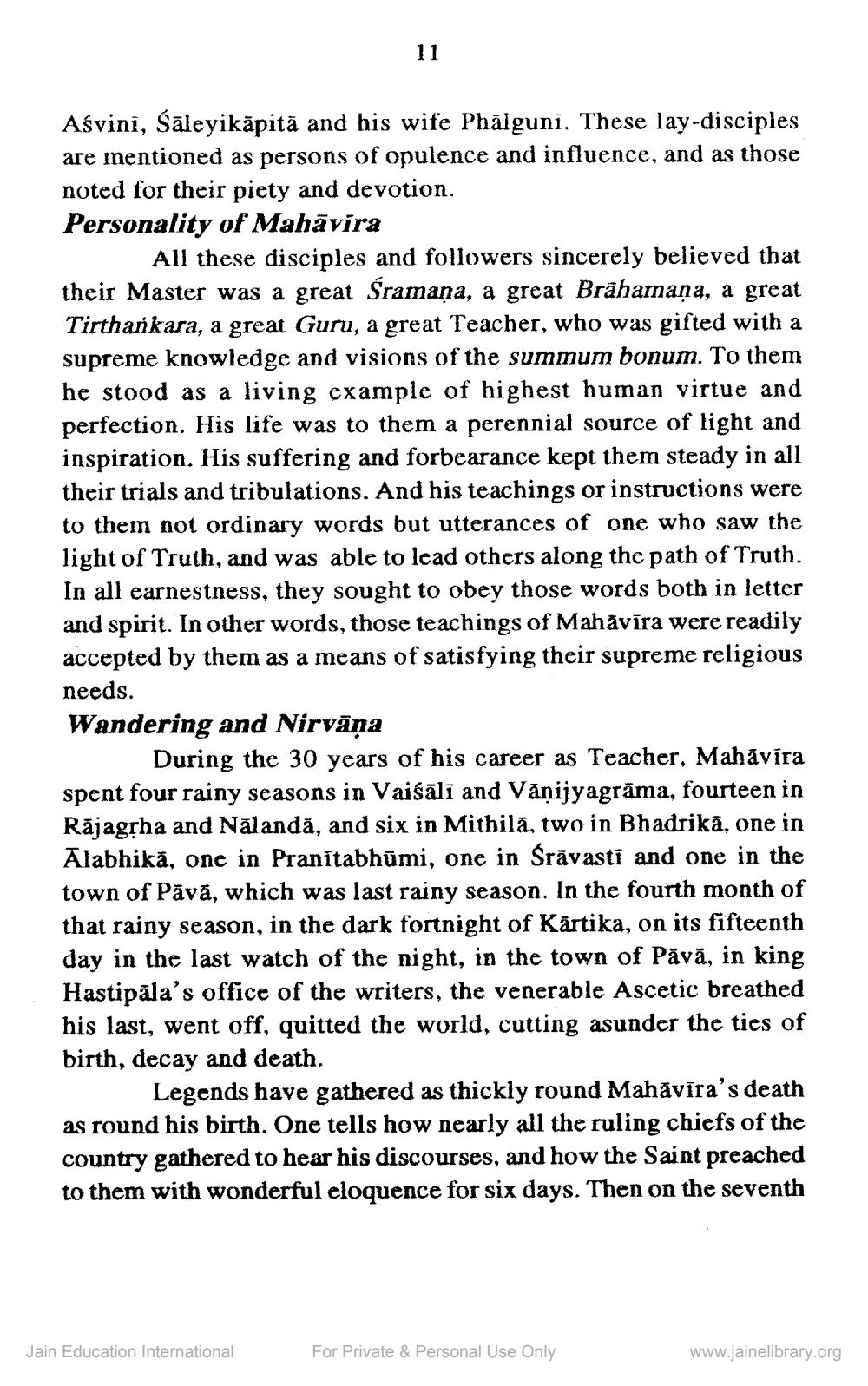________________
11
Ašvini, śāleyikāpitā and his wife Phālgunī. These lay-disciples are mentioned as persons of opulence and influence, and as those noted for their piety and devotion. Personality of Mahavira
All these disciples and followers sincerely believed that their Master was a great Šramana, a great Brāhamana, a great Tirthankara, a great Guru, a great Teacher, who was gifted with a supreme knowledge and visions of the summum bonum. To them he stood as a living example of highest human virtue and perfection. His life was to them a perennial source of light and inspiration. His suffering and forbearance kept them steady in all their trials and tribulations. And his teachings or instructions were to them not ordinary words but utterances of one who saw the light of Truth, and was able to lead others along the path of Truth. In all earnestness, they sought to obey those words both in letter and spirit. In other words, those teachings of Mahāvīra were readily accepted by them as a means of satisfying their supreme religious needs. Wandering and Nirvāņa
During the 30 years of his career as Teacher, Mahāvīra spent four rainy seasons in Vaiśāli and Vānijyagrāma, fourteen in Rājagļha and Nālandă, and six in Mithilā, two in Bhadrikā, one in Alabhikä, one in Pranītabhūmi, one in Srāvasti and one in the town of Pāvā, which was last rainy season. In the fourth month of that rainy season, in the dark fortnight of Kārtika, on its fifteenth day in the last watch of the night, in the town of Pāvā, in king Hastipāla's office of the writers, the venerable Ascetic breathed his last, went off, quitted the world, cutting asunder the ties of birth, decay and death.
Legends have gathered as thickly round Mahāvīra's death as round his birth. One tells how nearly all the ruling chiefs of the country gathered to hear his discourses, and how the Saint preached to them with wonderful eloquence for six days. Then on the seventh
Jain Education International
For Private & Personal Use Only
www.jainelibrary.org




